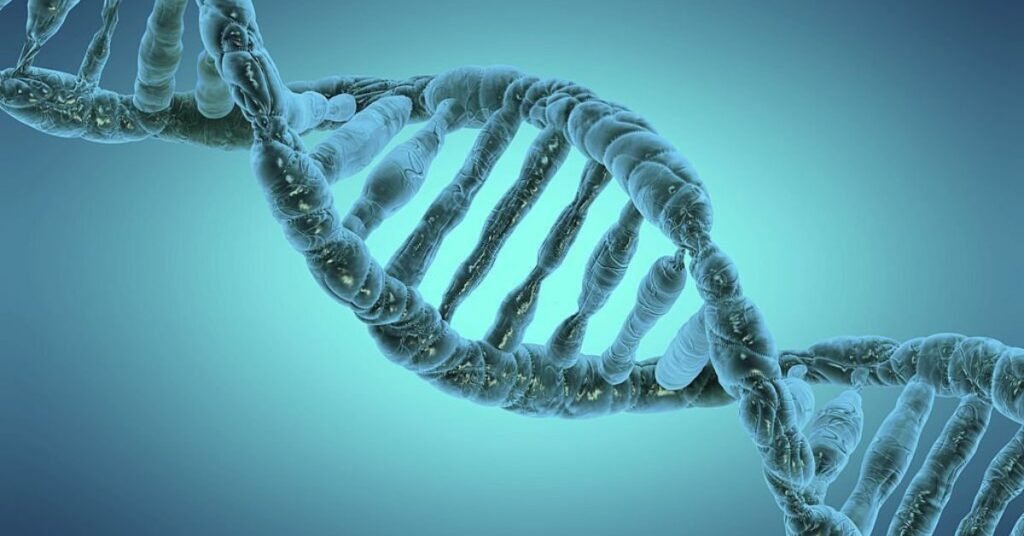Epigenetics refers to the study of changes in gene expression that occur without changes to the underlying DNA sequence. To make it simple to understand ,Imagine that you have a book of recipes. The recipes are your genes, and the ingredients are the proteins that your genes make. Epigenetic changes are like sticky notes that can be put on the recipes. The sticky notes don’t change the recipes themselves, but they can change how the recipes are read.
For example, a sticky note on a recipe might say “use half as much sugar.” This means that the recipe will make a less sweet cake. Epigenetic changes can work in a similar way. They can change how much protein is made by a gene, which can affect how your body works.
Epigenetic changes have been found to play a significant role in the ageing process, and there is growing evidence to suggest that they contribute to age-related diseases. Here are some key findings from recent studies on epigenetics and ageing:
- Epigenetic changes accompany ageing: Progressive changes to epigenetic information accompany ageing in both dividing and nondividing cells. These changes include DNA methylation, histone modification, chromatin remodelling, non-coding RNA regulation, and RNA modification.
- Epigenetic alterations represent a crucial mechanism behind ageing: Epigenetic alterations represent one crucial mechanism behind the deteriorated cellular functions observed during ageing and in age-related disorders.
- Epigenetic changes can drive ageing: A 13-year international study in mice demonstrated that loss of epigenetic information, which influences how DNA is organised and regulated, can drive ageing independently of changes to the genetic code itself.
- Restoring the integrity of the epigenome can reverse age-related symptoms: The same study found that restoring the integrity of the epigenome can reverse age-related symptoms.
- Epigenetics holds promise for interventions in ageing and diseases: A better understanding of the critical roles of epigenetics in the ageing process will lead to more clinical advances in the prevention of human ageing and therapy of ageing-related diseases.
Overall, the science of epigenetics offers intriguing windows into how and why we age at different rates, and it holds both great promise and potential peril for unethical or inequitable use. While this field is growing fast, it is still evolving, and many of the technologies are still only used in animal studies.
How do epigenetic changes affect the ageing process ?
Epigenetic changes have a significant impact on the ageing process. Here’s how these changes affect ageing:
- Altered gene expression: Epigenetic changes can lead to alterations in gene expression, meaning that certain genes may be turned on or off inappropriately. This can disrupt normal cellular functions and contribute to the ageing process..
- Impaired DNA repair: Epigenetic modifications can affect the ability of cells to repair DNA damage. As we age, the accumulation of DNA damage becomes more prevalent, leading to cellular dysfunction and increased risk of age-related diseases.
- Changes in chromatin structure: Epigenetic modifications, such as DNA methylation and histone modifications, can alter the structure of chromatin, the complex of DNA and proteins that make up chromosomes. These changes can affect the accessibility of genes, influencing their expression and contributing to ageing.
- Epigenetic clock: Epigenetic changes can be used to estimate biological age, often referred to as the “epigenetic clock.” DNA methylation patterns at specific sites can be used to predict an individual’s age with high accuracy. Accelerated epigenetic ageing, where the epigenetic clock is ahead of chronological age, has been associated with various age-related diseases.
- Transgenerational effects: Certain epigenetic changes can be passed down from one generation to the next, influencing the lifespan and health of offspring. This suggests that epigenetic modifications acquired during ageing can have long-lasting effects on future generations.
- Reversibility: Excitingly, recent studies have shown that some age-related epigenetic changes can be reversed. Interventions such as cyclic expression of specific genes have been found to restore the epigenetic landscape and rejuvenate cells..
Understanding the role of epigenetic changes in the ageing process is crucial for developing interventions to promote healthy ageing and prevent age-related diseases. Further research in this field holds promise for potential therapeutic strategies to slow down or reverse the effects of ageing.
What are some specific epigenetic changes that occur in different organs or tissues during ageing
Epigenetic changes during ageing can have specific effects on different organs and tissues in the body. Here’s how epigenetic changes impact specific organs or tissues during the ageing process:
- Brain: Epigenetic changes in the brain can affect cognitive function and contribute to age-related neurodegenerative diseases such as Alzheimer’s disease. Studies have shown alterations in DNA methylation and histone modifications in the brains of ageing individuals.
- Heart: Epigenetic modifications in the heart can influence cardiac function and contribute to age-related cardiovascular diseases. Changes in DNA methylation and histone modifications have been associated with cardiac ageing and the development of heart failure.
- Liver: Epigenetic changes in the liver can affect metabolic processes and contribute to age-related metabolic disorders such as fatty liver disease. Alterations in DNA methylation and histone modifications have been observed in the livers of ageing individuals.
- Muscles: Epigenetic modifications in muscle tissue can impact muscle function and contribute to age-related muscle loss and weakness (sarcopenia). Changes in DNA methylation and histone modifications have been implicated in the decline of muscle mass and strength with ageing.
- Immune system: Epigenetic changes in immune cells can lead to alterations in immune function and contribute to age-related immune dysfunction. DNA methylation and histone modifications have been shown to influence the ageing of immune cells and the decline in immune response with age.
- Skin: Epigenetic modifications in skin cells can affect skin ageing and the development of age-related skin conditions. Changes in DNA methylation and histone modifications have been associated with skin ageing, wrinkle formation, and impaired wound healing.
It’s important to note that these are just a few examples, and epigenetic changes can impact various other organs and tissues in the body. The specific effects of epigenetic changes on ageing can vary depending on the tissue type and the specific genes and pathways involved. Further research is needed to fully understand the complex relationship between epigenetic changes and organ/tissue-specific ageing processes.
How do epigenetic changes in the brain affect memory and cognition during ageing
Epigenetic changes in the brain during ageing can impact memory and cognition. Here’s how:
- Disruption of memory-promoting gene transcription: Age-related alterations in DNA methylation and histone modifications can lead to the disruption of memory-promoting gene transcription. This can impair memory consolidation and contribute to age-related cognitive decline.
- Altered epigenome function: Growing evidence points to altered epigenome function in the ageing brain. Dysregulation of epigenetic mechanisms has been associated with or contributes to memory decline across the lifespan.
- Epigenetic regulation of memory: Epigenetic mechanisms are involved in the regulation of neural differentiation as well as in functional processes related to memory consolidation, learning, or cognition during healthy lifespan. Changes in the epigenetic code that drives learning and memory can lead to cognitive impairment.
- Epigenetic age and cognitive impairment: Epigenetic changes can also predict cognitive impairment and deteriorating working memory. A longitudinal study has shown that the epigenetic DNA-methylation age predicted dementia significantly when compared to the chronological age.
It’s important to note that these are just a few examples, and epigenetic changes can impact various other organs and tissues in the body. The specific effects of epigenetic changes on ageing can vary depending on the tissue type and the specific genes and pathways involved. Further research is needed to fully understand the complex relationship between epigenetic changes and organ/tissue-specific ageing processes.
What are some potential interventions to reverse epigenetic changes in the brain and improve cognitive function during ageing ?
There is growing evidence that epigenetic interventions can reverse epigenetic changes in the brain and improve cognitive function during ageing. Here are some potential interventions:
- Epigenome-modulating therapies: Epigenome-modulating therapies, such as DNA methyltransferase inhibitors (DN-MTi), methyl donors, and histone deacetylase inhibitors (HDACi), can reactivate neuronal plasticity in mature brains and have already entered clinical practice.
- Small molecule-based therapies: Small molecule-based therapies and reprogramming strategies that enable epigenetic rejuvenation have been developed for ameliorating or reversing ageing-related conditions ..
- Caloric restriction and exercise: Adopting health-promoting activities, such as caloric restriction and exercise, has been demonstrated to delay ageing and improve cognitive function.
- Cyclic expression of specific genes: Recent studies have shown that age-related epigenetic changes can be reversed with interventions such as cyclic expression of specific genes. This approach has been found to restore the epigenetic landscape and rejuvenate cells.
- Epigenetic drugs: Epigenetic drugs, such as DN-MTi and HDACi, have been used to treat age-related neurological disorders and have shown promising results in preclinical studies.
Overall, epigenetic interventions hold promise for reversing epigenetic changes in the brain and improving cognitive function during ageing. Further research is needed to fully understand the potential of these interventions and to develop safe and effective therapies for age-related neurological disorders.
What are some health-promoting activities that have been shown to delay ageing through epigenetic mechanisms ?
There are several health-promoting activities that have been shown to delay ageing through epigenetic mechanisms. Here are some examples:
- Caloric restriction: Caloric restriction has been shown to delay ageing and improve cognitive function through epigenetic mechanisms. Caloric restriction can alter DNA methylation patterns and histone modifications, leading to changes in gene expression that promote longevity and healthy ageing.
- Exercise: Exercise has been associated with slower epigenetic aging and improved cognitive function. Exercise can alter DNA methylation patterns and histone modifications, leading to changes in gene expression that promote healthy ageing and cognitive function.
- Calibrating circadian rhythm: Calibrating circadian rhythm has been demonstrated to delay ageing through epigenetic mechanisms. Disruption of circadian rhythm can lead to alterations in DNA methylation patterns and histone modifications, contributing to age-related diseases. Calibrating circadian rhythm can restore these epigenetic changes and promote healthy ageing.
Overall, adopting health-promoting activities such as caloric restriction, exercise, and calibrating circadian rhythm has been demonstrated to delay ageing through epigenetic mechanisms. These interventions can alter DNA methylation patterns and histone modifications, leading to changes in gene expression that promote healthy ageing and cognitive function.

